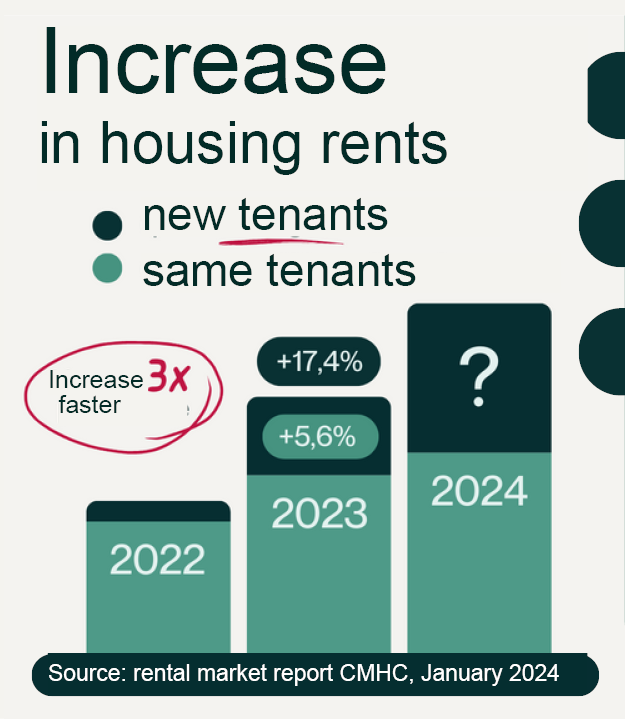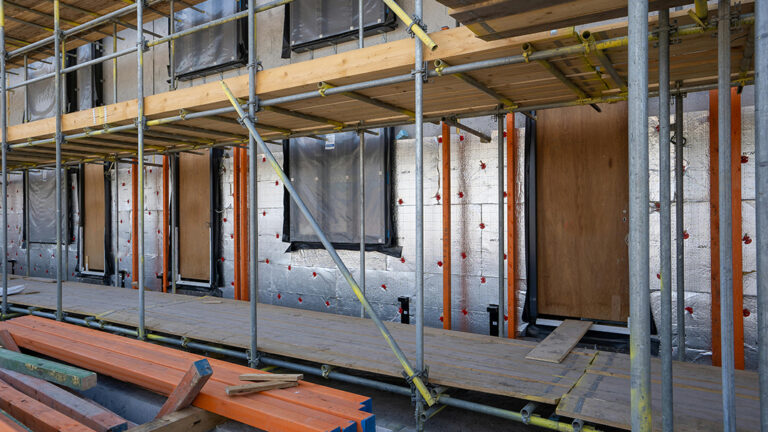Since its launch in Quebec in May 2023, the Rental Registry created by Vivre en Ville, subsidized by the Centre, has received a very warm welcome.
The tool, which helps in supporting tenants has been adopted by multiple keystakeholders. It is also viewed as a means to address the current housing crisis.
The aim of the Rental Registry is to collect data on a secure platform, to ensure greater transparency in terms of rental prices, and therefore provides tenants with the information they need to reject an abusive rent increase. be able to defend their accessibility.
In addition to being a tool accessibleto all, it provides unprecedented visibility on housing market trends by monitoring changes in rental costs on an annual basis.
Thanks to its transparency, it also helps relieve congestion at the TAL (Tribunal Administratif du Logement), where rent-setting applications exploded in 2023, and improves tenant-landlord relations.
The application of Article 1950 of the Civil Code of Québec, which promotes affordability in the rental market for the middle class, also benefits from the creation of the registry.
Convincing research
Polls (Léger survey) carried out prior to the launch of the registry revealed that 80% of tenants surveyed were not informed of the amount of rent paid by previous tenants. However, this information must appear in section G of the lease form.
When this information was not provided, it resulted in an average rent increase of around 18% for the tenant.
Another notable fact is that this Léger study of the rental market represents the largest study on the subject to date, revealing in the process that a lack of information has a causal effect on cost.
These awareness-raising efforts have also borne fruit at the government level, bringing attention to the need to find ways of ensuring the application of clause G in a systematic manner.

Considerable progress
Since its launch, the Rental Registry has enjoyed significant media and public visibility over the past year. For example, the registry now boasts 55,000 registrations since its creation, appears in 16 municipal resolutions, and 50% of Quebec cities are in favour of similar registries. r
Vivre en Ville also submitted a memorandum to the CAT (Commission de l’Aménagement du Territoire) on the Rental Registry, entitled “Pour un véritable plan d’action en habitation: tout le Québec habite quelque part”, as part of the consultations for Bill 31.
In terms of national expansion, a Rental Registry was also launched in Ontario in September 2023.
Source: Vivre en Ville Impact Report – March 2024
Valuable support
A broad-based mobilization and support have been established, as shown by the open letter from 14 mayors across the province in June 2023, demonstrating their support for the Rent Registry as an effective measure to counter rent increases.
Since then, many municipalities have joined the movement, including Westmount, Chambly and Saint-Jérôme.
They call on the Quebec government to adopt a public, mandatory and universal rental registry.
Other voices from the academic, business and association sectors are also making themselves heard, and are clearly in favor of setting up a registry for greater transparency and fairness.
“For us, it’s our future and that of our future families that is at stake. The current housing crisis jeopardizes not only our social cohesion, but also our collective ability to offer everyone a dignified and affordable living environment”.
Excerpt from “Lettre ouverte Organisations Jeunesses” in La Presse – February 20, 2024
The Centre and its partners are delighted with the recognition and success of this tool, and hope and work to see its implementation evolve on a pan-Canadian scale.



